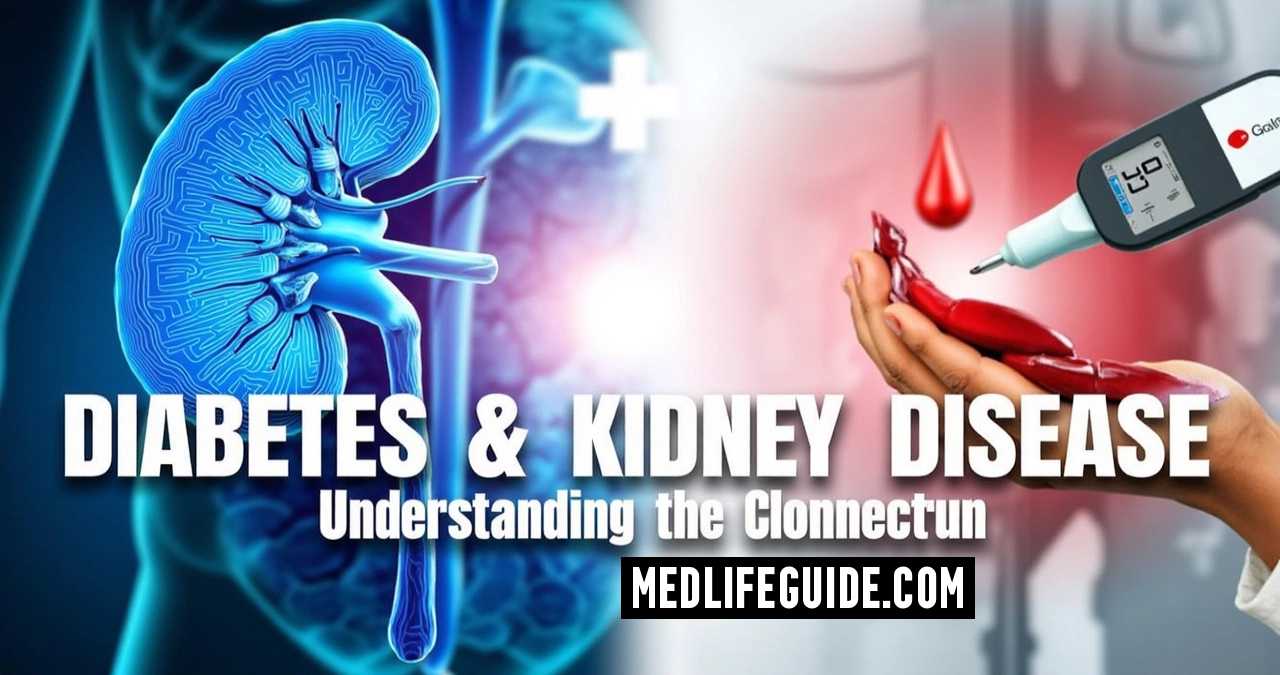Diabetes mellitus and chronic kidney disease (CKD)
Diabetes mellitus and chronic kidney disease (CKD) are two closely linked conditions that pose a significant global health burden. Nearly 40% of people with diabetes eventually develop kidney complications, making it one of the leading causes of CKD and end-stage renal disease (ESRD).
But wh
Diabetes mellitus and chronic kidney disease (CKD)
Diabetes mellitus and chronic kidney disease (CKD) are two closely linked conditions that pose a significant global health burden. Nearly 40% of people with diabetes eventually develop kidney complications, making it one of the leading causes of CKD and end-stage renal disease (ESRD).
But why does diabetes damage the kidneys? And what can be done to prevent or slow kidney decline? This article explores the mechanisms, risk factors, latest treatments, and practical lifestyle adjustments to help manage—or even prevent—diabetic kidney disease.
How Diabetes Leads to Chronic Kidney Disease
1. The Role of High Blood Sugar
Persistently elevated glucose levels damage the glomeruli, the tiny filtering units in the kidneys. Over time, this leads to:
- Protein leakage (albuminuria) – An early sign of kidney damage.
- Scarring (glomerulosclerosis) – Reduced kidney function.
- Hypertension – High blood pressure accelerates kidney decline.
2. Inflammation and Oxidative Stress
Diabetes triggers chronic inflammation and oxidative stress, further harming kidney tissues. Advanced glycation end-products (AGEs) contribute to this damage.
3. Poor Blood Flow and Nerve Damage
Diabetic neuropathy can impair kidney function by disrupting signals that regulate blood flow.
(Internal Link Opportunity: Link to a future post on “How to Lower Blood Sugar Naturally” for readers seeking prevention strategies.)
Stages of Diabetic Kidney Disease (DKD)
Chronic kidney disease progresses in five stages, based on glomerular filtration rate (GFR):
| Stage | GFR (mL/min) | Description |
|---|---|---|
| 1 | ≥90 | Normal kidney function, but signs of damage (e.g., protein in urine) |
| 2 | 60-89 | Mild kidney damage |
| 3a | 45-59 | Moderate decline |
| 3b | 30-44 | Moderate to severe decline |
| 4 | 15-29 | Severe CKD |
| 5 | <15 | Kidney failure (dialysis or transplant needed) |
Key Takeaway: Early detection (Stage 1-2) allows for interventions that can delay progression.
Who Is at Highest Risk?
Not everyone with diabetes develops CKD. Risk factors include:
- Uncontrolled blood sugar (HbA1c > 7%)
- High blood pressure (>140/90 mmHg)
- Long-standing diabetes (10+ years)
- Family history of kidney disease
- Smoking and obesity
- Certain ethnicities (African American, Hispanic, Native American)
Early Warning Signs of Kidney Damage
Many people don’t notice symptoms until CKD is advanced. Watch for:
- Foamy urine (excess protein)
- Swelling in legs/ankles (edema)
- Fatigue and trouble concentrating
- Increased urination (especially at night)
- High blood pressure that’s hard to control
Action Step: If you have diabetes, get annual urine albumin tests and GFR checks.
How to Protect Your Kidneys: Evidence-Based Strategies
1. Tight Blood Sugar Control
- Target HbA1c < 7% (individualized based on age/complications).
- Medications like SGLT2 inhibitors (e.g., empagliflozin) have shown kidney-protective benefits.
2. Manage Blood Pressure
- Aim for <130/80 mmHg.
- ACE inhibitors (lisinopril) or ARBs (losartan) are first-line treatments.
3. Dietary Adjustments
- Reduce sodium (helps lower blood pressure).
- Moderate protein intake (excess strains kidneys).
- Limit processed foods (high in phosphorus/potassium in late-stage CKD).
(Internal Link Opportunity: “Best and Worst Foods for Diabetic Kidney Health” could be a future post.)
4. Avoid Nephrotoxic Substances
- NSAIDs (ibuprofen, naproxen) worsen kidney function.
- Contrast dyes (used in imaging tests) can be harmful in advanced CKD.
- Excessive alcohol strains kidney filtration.
5. Stay Active & Maintain a Healthy Weight
- Exercise improves insulin sensitivity and blood pressure.
Emerging Treatments & Research
- GLP-1 agonists (e.g., semaglutide) – May slow CKD progression.
- Finerenone – A new non-steroidal mineralocorticoid receptor antagonist (MRAs) for diabetic kidney disease.
- Stem cell therapy – Experimental but promising for kidney regeneration.
(Expertise Boost: Cite a recent study, e.g., “A 2023 NEJM study found finerenone reduced CKD progression by 18% in diabetics.”)
When to See a Nephrologist
Referral is recommended if:
- GFR falls below 30 (Stage 4-5 CKD).
- Proteinuria is severe (>300 mg/day).
- Blood pressure remains uncontrolled.

